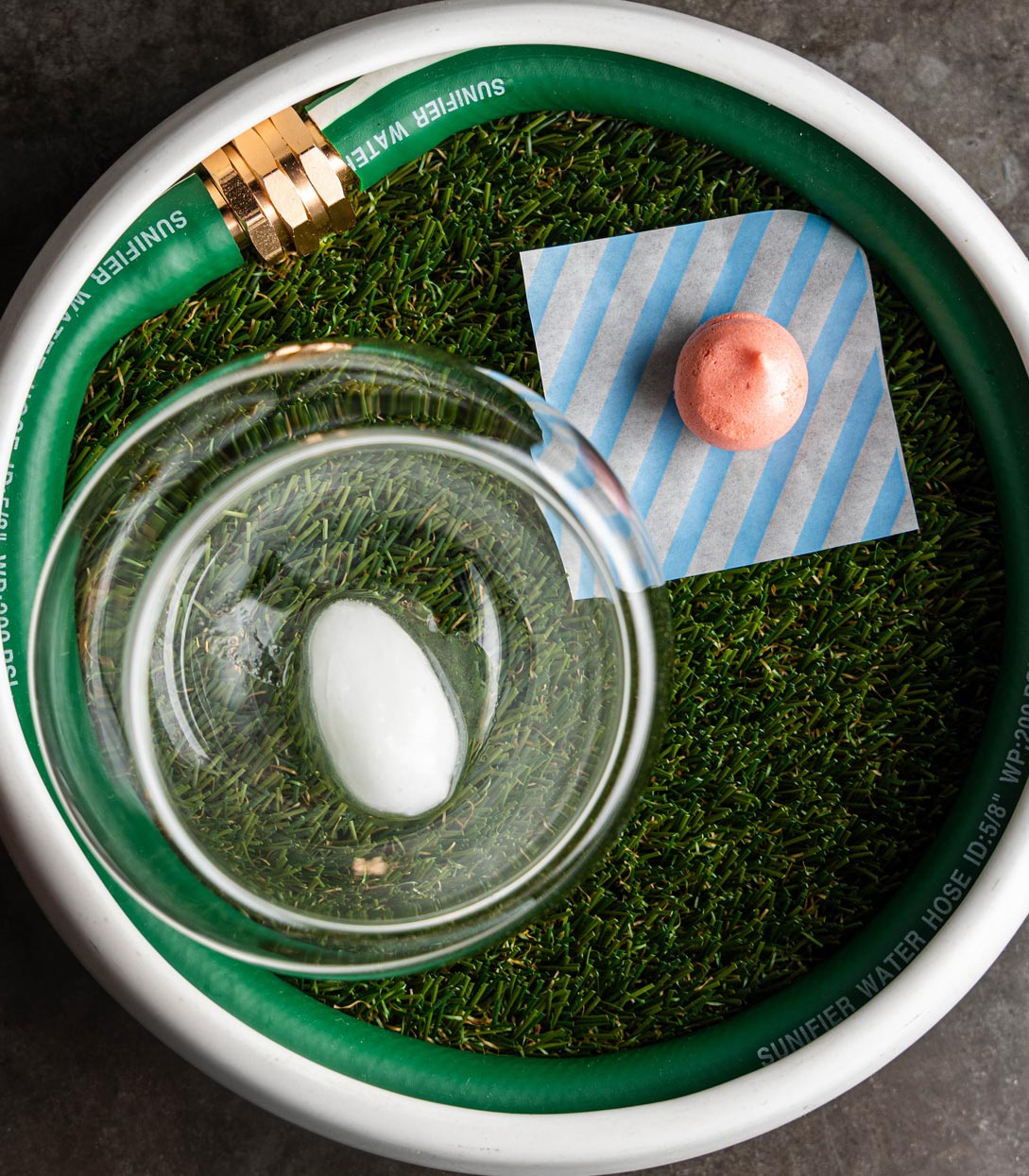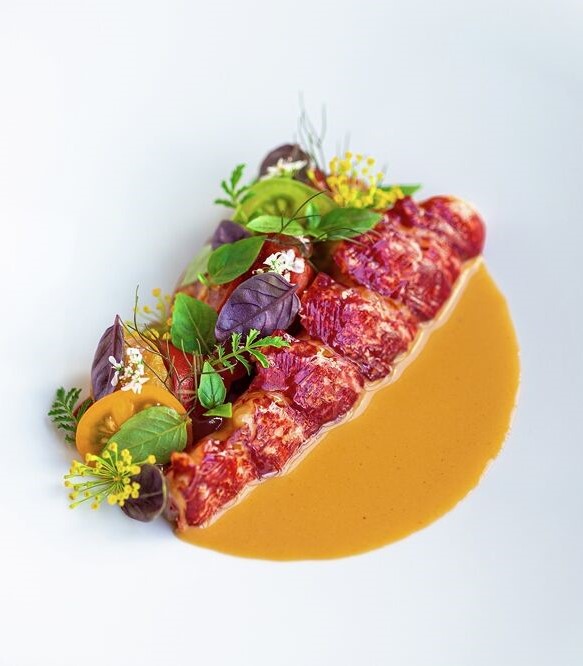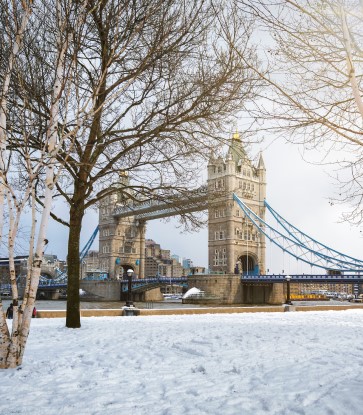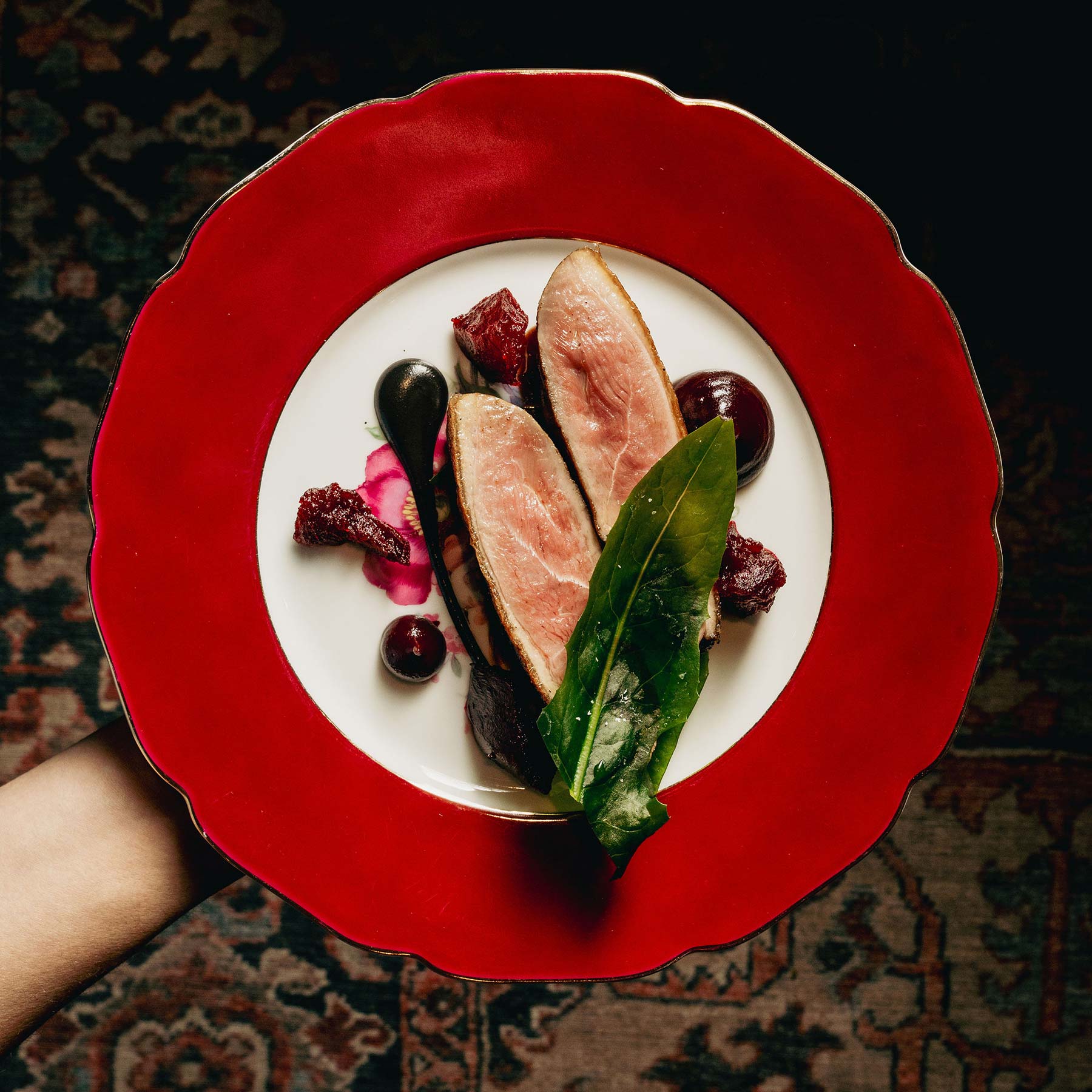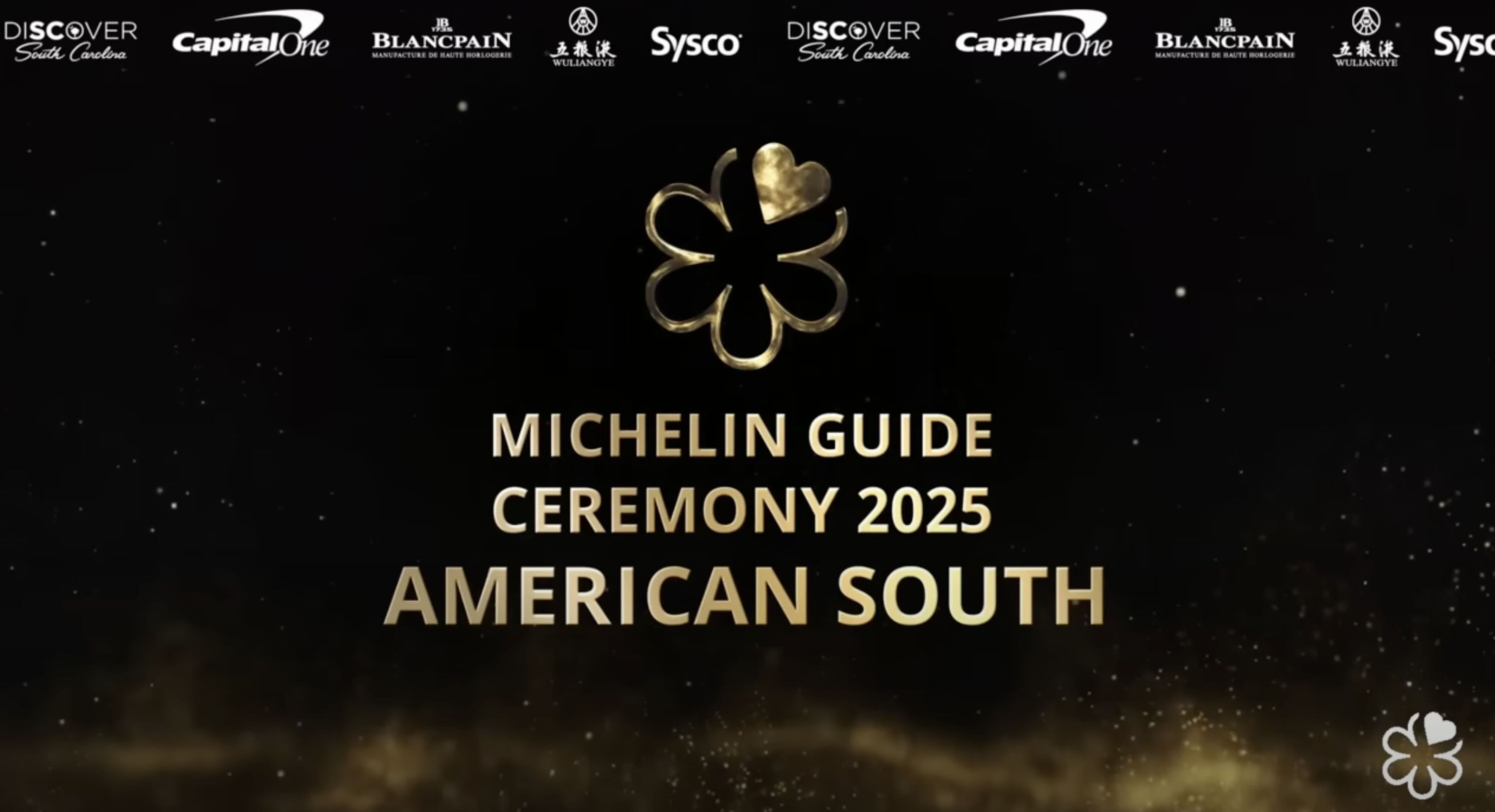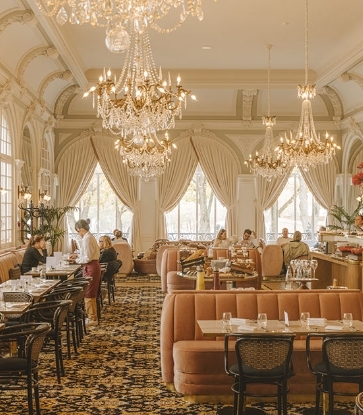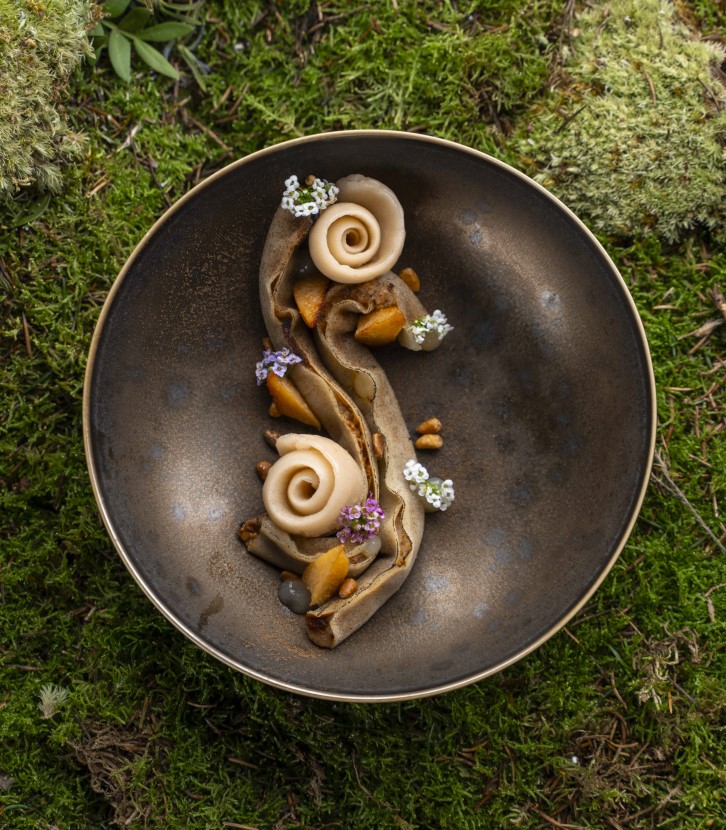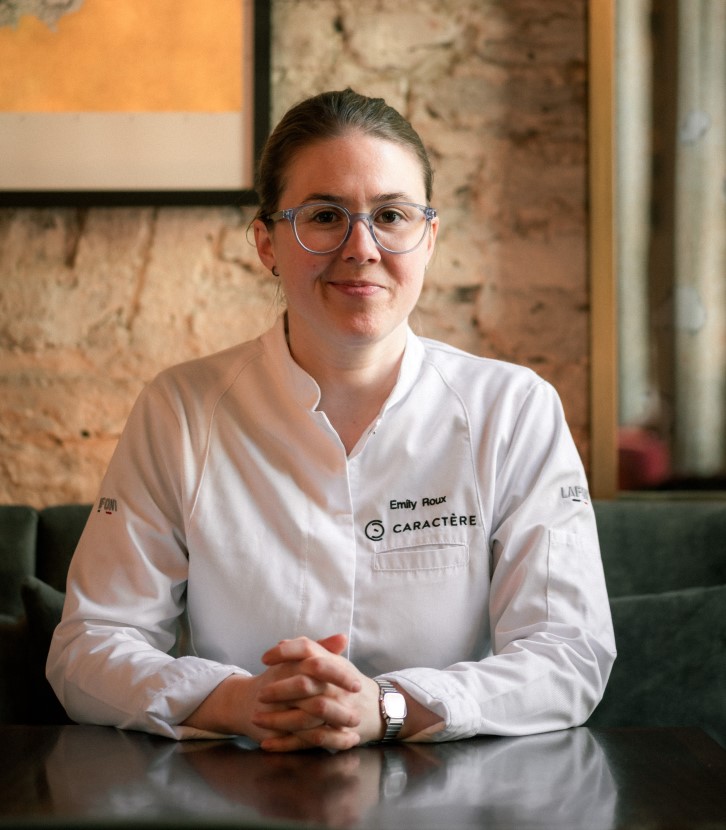The MICHELIN Green Star is awarded to restaurants who are at the forefront of the industry in sustainability. From community gardens and residencies aimed to explore the dynamic between humans and food to transforming recycled bags into plates, these restaurants prove that being green can be just as tasty as their counterparts.
That’s why, every week, we will be highlighting a Green Star restaurant across the United States to share their sustainability story and why it means so much to them.
A community-focused Filipino restaurant in downtown Orlando, Kaya has been at the forefront of sustainable dining in Florida. Inspired by the nose-to-tail sustainable dining of his ancestors, Chef Lordfer Lalicon also trained with Chef Dan Barber of Two MICHELIN Star and Green Star Blue Hill at Stone Barns. Collaborating closely with Everoak Farm and other local purveyors, he makes sure to generate as little food waste as possible, while never compromising taste.
And if you want to check out our Inspectors' take, click here.

What is your philosophy on sustainability?
Sustainability has many different parts. Community is a very big focus, so it's all about people. One of our largest values is kapwa – basically everything's connected. How we evaluate sustainability starts with the people, our culture, because what we're doing is not new. Our ancestors have been doing things like this before.
We're paying homage to that nose-to-tail eating that we've been doing for a long time. Fermentation with fish sauce, soy sauce, things like burong, which is fermented rice. That's stuff our family's been doing for a long time. So we're trying to continue our knowledge, and use what we have now – the technology and the knowledge – to make the world a better place.
We focus on partnering with our [local] farmers, and them being organic and regenerative. Everoak Farm’s Mike Garcia always teaches us how to harbor our land. Not just being low waste, but zero waste, and then rebuilding the land. From taking our food scraps and trims and turning them into something that we can serve or the bar can use. Trying to at least use everything one more time, if not two more times into a vinegar or a fish sauce.

Tell us about a few of your most impactful initiatives.
We're growing calamansi right now in the back of our property. We have guava, figs, bananas, lemongrass, marigolds, and sweet potato leaves. Those are things we use daily, and it's growing right there.
We have a small barangay, a little neighborhood, and we have a Bodhi tree where the community meets a lot and hangs out. We just re-tilled the land, we put mulch, so we’re trying to regenerate the soil, so we can plant more native plants, edibles and herbs. It tastes better, it's a more consistent product, and it's as fresh as it can be.
A lot of restaurants in Orlando don't think it's possible, but it just takes a little ingenuity. Our bar program has really [been creative], taking sweet potato peels, cabbage trim to really highlight the farms.
We do a lot of compost. Orlando's O-Town Compost just hit five million pounds. It’s also educating our staff and the community. We have everyday people signing up for compost. I think it's cool that we're using the restaurant as a platform for people to get more knowledge.
What’s the most sustainable dish on the menu? Why?
Our lumpiang sariwa, an ube buckwheat crepe. Inside are all the seasonal vegetables. Right now, it's Seminole pumpkin, sweet potatoes, zucchini, red onions, red cabbage, peppers. We utilize everything that is in season during that time, sauté it. Take all the trim, all the peels, and we roast the vege out of it. We make a nice stock – umami flavor. Right now, persimmons are in season, so we take a persimmon puree and mix it inside there, and we top it with that vege jus that's been made from all the trim.

What can other restaurants do to be more environmentally conscious?
Compost. That's the easiest. Everybody has food trim.
Next is to look at their menu and see what they're wasting so they can save money.
And then being in partnership with your purveyors, your local economy, and taking the effort to make a relationship with these people. People do want to support the local economy. They just need to know. Our responsibility is to do it and also to educate them. That's always been the chef's responsibility.
What’s one thing everyone can do to be more environmentally friendly in their daily lives?
Use less plastic. Plastic is a big thing everywhere, but if you go shopping every day, take a bag with you.
Support your [sustainable] local businesses. That's a huge one. Make a choice to not go to the everyday, run-of-the-mill restaurant that is a franchise, and go to a restaurant that you know is trying to do the right thing, so they can continue to do the right thing.
It's not necessarily profit oriented. Restaurants like us die fast because we're trying to do the right thing, and sometimes the right thing is not as profitable as other things. And that's why most restaurants don't do what we do because the margins are so low. Support any type of restaurant that is trying to do local before you support anything else.

What do you view as the future of zero waste/sustainability in gastronomy?
Dan Barber, I worked with him for a little bit, and he was my mentor. He wrote the book called The Third Plate. I took a lot from that book and the philosophy of the whole beef and utilizing all the cuts and the bones, and eventually it just becomes sauce. And then the vegetables become the main component, and the meat is just a sauce, because that's what's going to give you the fatness to the dish. It's going to help you enjoy it. I took that to heart.
It's not just about sustainability, it’s about health. It’s all connected. We need to be a healthier society as well. Focusing on vegetables is part of that future. Right now, I'm reading Douglas McMaster’s book Silo on zero waste. What we can do ourselves and within our bandwidth to create zero waste and less waste.
There's going to be hopefully a lot more local farmers, a lot more chefs that are focusing on what they can do, simpler menus to create a low waste program and just being more mindful. The opportunity is there now, and people are seeing it, and people are being educated about their health more than ever.

Hero image: Raphael Loquellano / Chef Lordfer Lalicon







